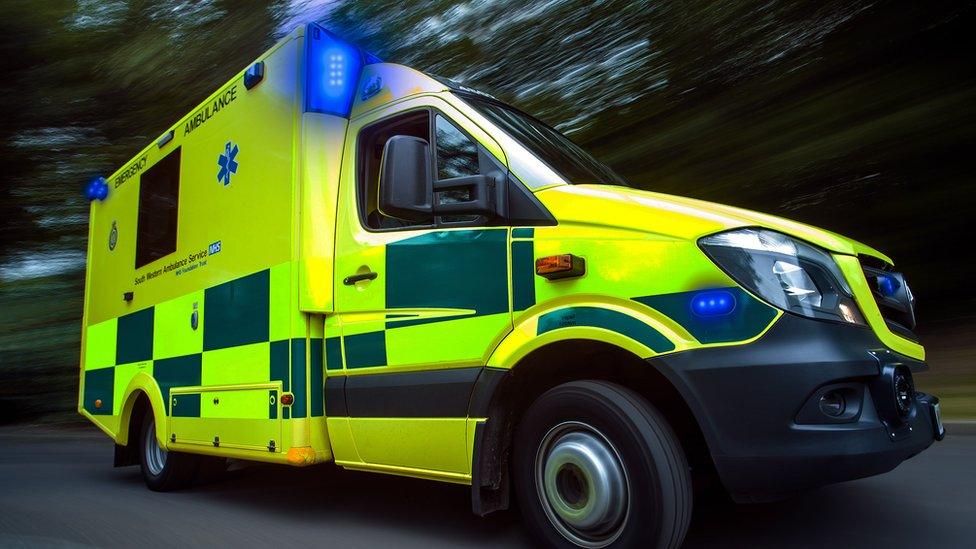South Western Ambulance Service: Assaulted paramedic welcomes body cams
- Published
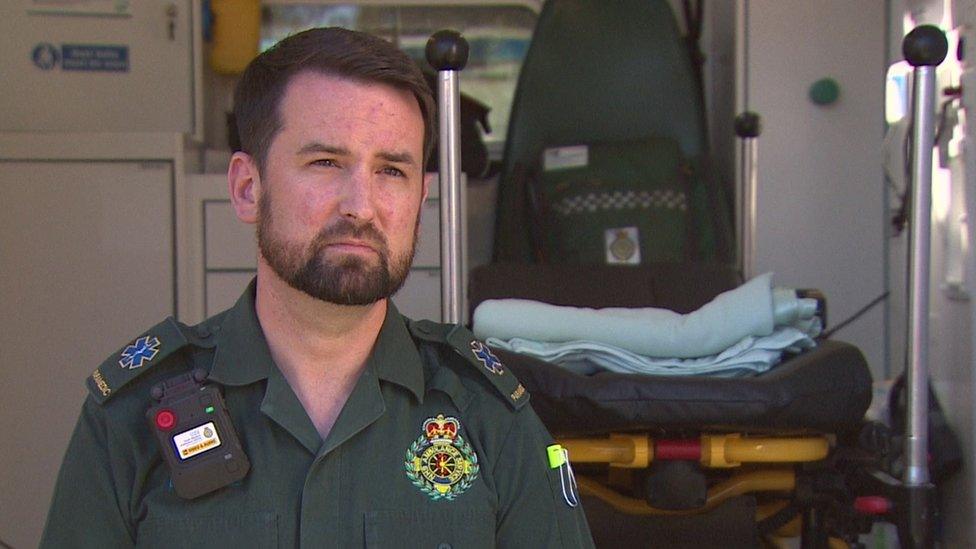
Rich Stevens said he had been assaulted "multiple" times in the past five years
A paramedic assaulted by a man he was helping said he believed body-worn cameras would be a "good deterrent".
Rich Stevens said he had been assaulted "multiple" times in the past five years, including being punched in the face in May.
The paramedic said the camera evidence would help to prosecute individuals.
South Western Ambulance Service Foundation Trust (SWASFT) said "unacceptable behaviour" was having "a profound and lasting impact" on staff.
'Escape route'
Mr Stevens said a man "leapt up off a stretcher", punched him in the face and left him with a sore eye.
The Plymouth-based paramedic said such incidents did affect him and his colleagues' work and they had to "constantly assess situations, making sure you've got an escape route".
He said he thought the cameras were "a good deterrent, particularly in situations where staff are assaulted ... it might make people think twice".
"If someone does get assaulted, we've got that evidence there to then prosecute.
"It's easy to assume that this uniform will protect you, but actually we are incredibly vulnerable as well," he added.
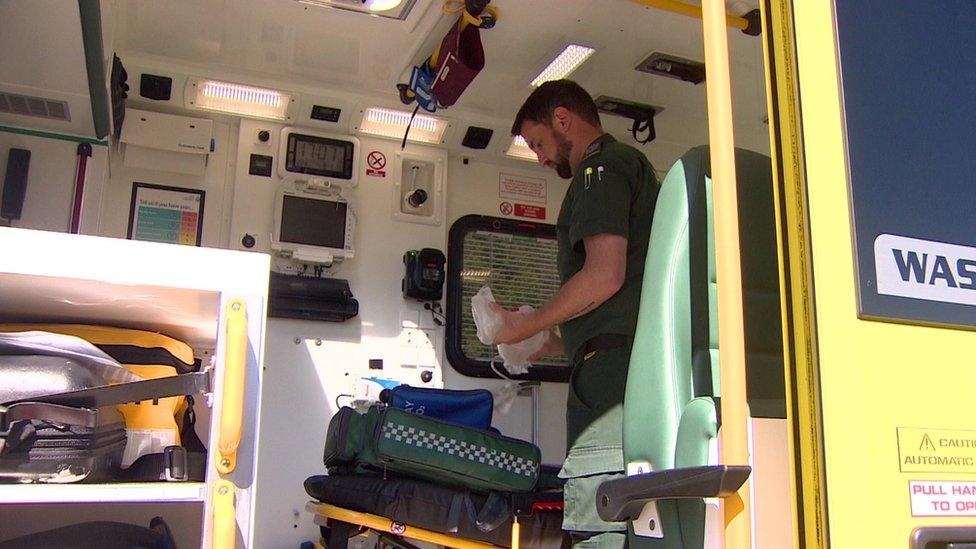
Paramedic Rich Stevens' concerns about incidents affect him, and he tries to ensure he has "got an escape route if the situation turns violent"
SWASFT said the body-worn cameras would be used from this summer.
It said it was rolling out the cameras "in a bid to reduce violence and aggression against colleagues" from "patients and other members of the public".
It said staff reported 1,917 incidents of violence and aggression during the year to 23 May, including 345 physical assaults - representing a 38% rise.
Paramedic Mike Jones, who is SWASFT's violence reduction lead, said such "unacceptable behaviour while trying to provide emergency care" was having "a profound and lasting impact" on staff, "their colleagues and loved ones".
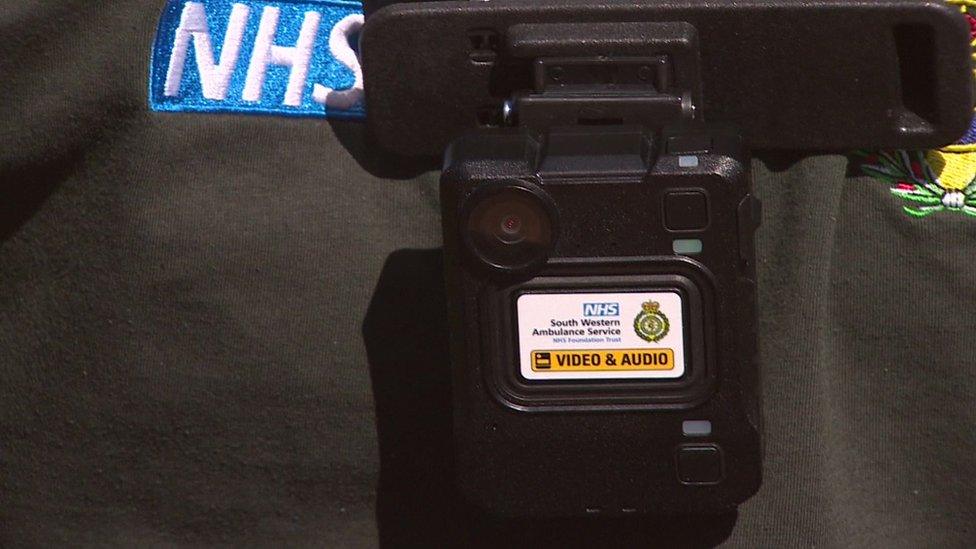
The body-worn cameras are being made available to all front-line crew
He said the cameras "should also make our crew feel safer at work, and be able to do their jobs without fear of attack".
The trust provides ambulance and other medical services for Bath & North East Somerset, Bristol, Cornwall & the Isles of Scilly, Devon, Dorset, Gloucestershire, Wiltshire and Somerset.

Follow BBC News South West on Twitter, external, Facebook, external and Instagram, external. Send your story ideas to spotlight@bbc.co.uk, external.
- Published2 June 2021
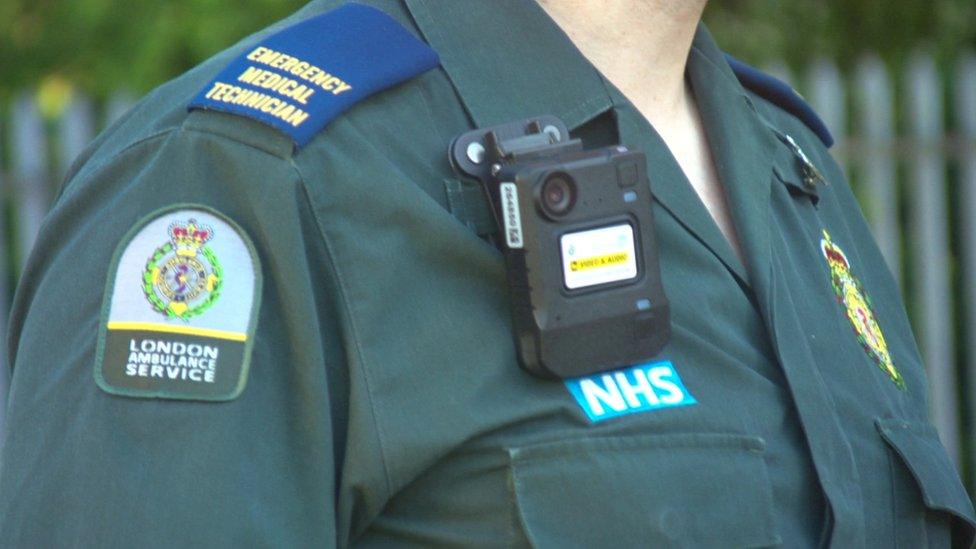
- Published30 May 2021
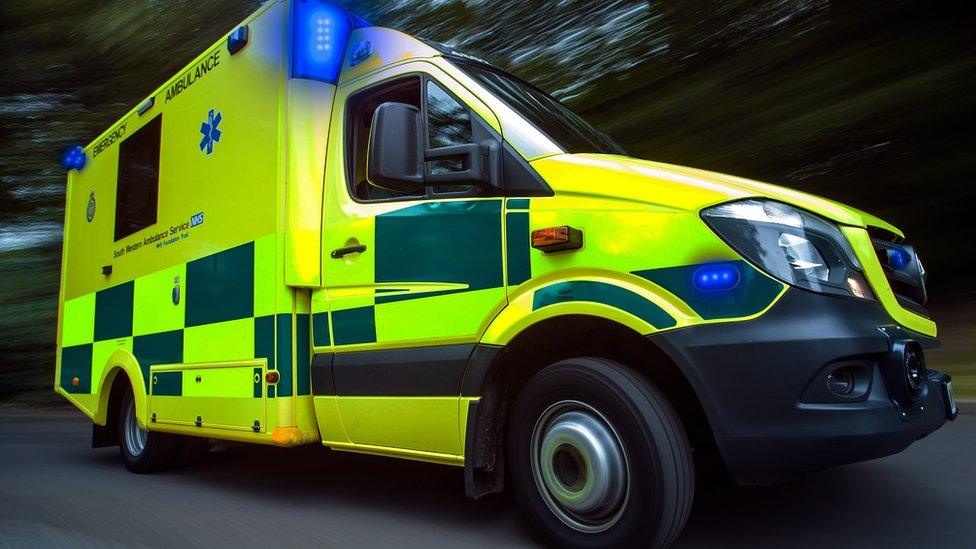
- Published5 April 2021
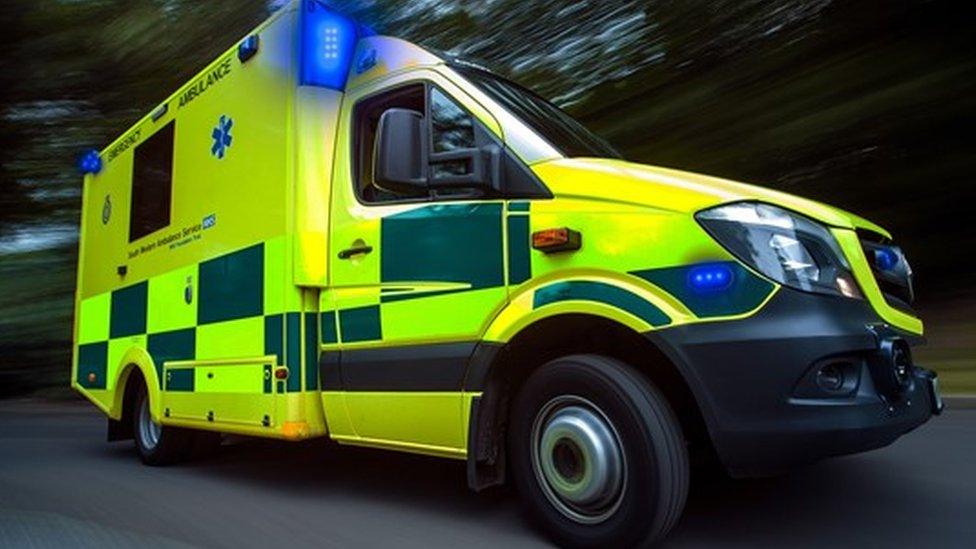
- Published20 January 2021
